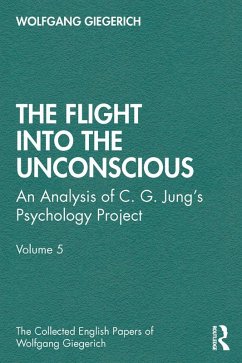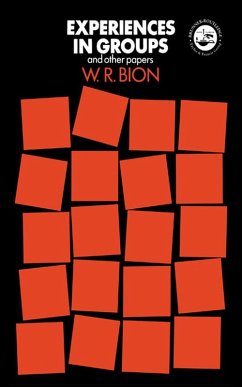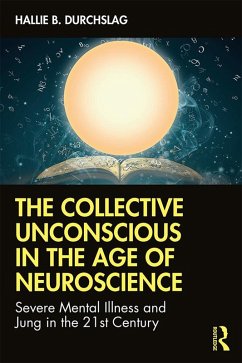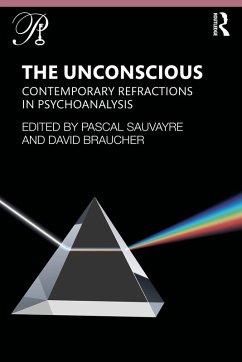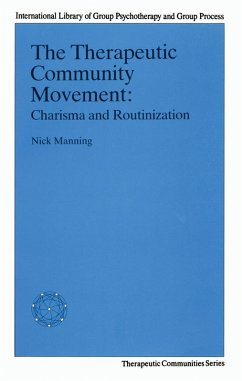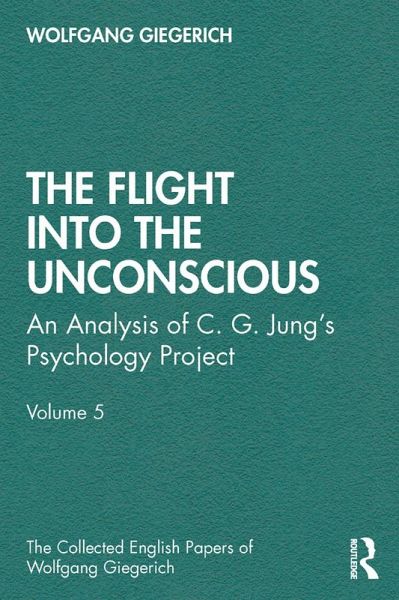
The Flight into The Unconscious (eBook, ePUB)
An Analysis of C. G. Jung's Psychology Project, Volume 5
Versandkostenfrei!
Sofort per Download lieferbar
32,95 €
inkl. MwSt.
Weitere Ausgaben:

PAYBACK Punkte
16 °P sammeln!
Psychological analysis usually sets its sights upon the patient or upon cultural phenomena such as myths, literature, or works of art. The essays in this volume, by contrast, have another addressee, another subject matter: psychology itself. Deeply informed by Jung's insight regarding the discipline's lack of an objective vantage point outside and beyond the psyche, their Jungian author again and again turns Jung's contribution to psychology around upon itself in the spirit of an immanent critique. Cutting to the quick, the question is put: in its constitution as psychology is Jungian psycholo...
Psychological analysis usually sets its sights upon the patient or upon cultural phenomena such as myths, literature, or works of art. The essays in this volume, by contrast, have another addressee, another subject matter: psychology itself. Deeply informed by Jung's insight regarding the discipline's lack of an objective vantage point outside and beyond the psyche, their Jungian author again and again turns Jung's contribution to psychology around upon itself in the spirit of an immanent critique. Cutting to the quick, the question is put: in its constitution as psychology is Jungian psychology up to the level of what its insight into psychology's lack of an Archimedean point would require? Are the interpretations it gives of its various subject matters-alchemy, religion, the unconscious and the rest-matched by its interpretation of itself? Has its meeting itself in them had consequences for itself, consequences in terms of the fathoming of its own truth? Or clinging to the standpoint of empirical observer, did it ultimately demur with regards to the question of their truth and its own - this despite Jung's having characterized his work as an opus divinum?
Topics include Jung's psychology project as a response to the condition of the world, the "smuggling" inherent in the logic of "the unconscious," the closure and setting free dialectic of alchemy and psychology, the blindness to logical form problematic, the faultiness of the opposition "Individual" and "Collective", Jung's communion fiasco, his thinking the thought of not-thinking, the veracity of his Red Book, the disenchantment complex, and, as indicated in the title of this volume, Jung's psychology project as a counter-speculative "flight into the unconscious."
Topics include Jung's psychology project as a response to the condition of the world, the "smuggling" inherent in the logic of "the unconscious," the closure and setting free dialectic of alchemy and psychology, the blindness to logical form problematic, the faultiness of the opposition "Individual" and "Collective", Jung's communion fiasco, his thinking the thought of not-thinking, the veracity of his Red Book, the disenchantment complex, and, as indicated in the title of this volume, Jung's psychology project as a counter-speculative "flight into the unconscious."
Dieser Download kann aus rechtlichen Gründen nur mit Rechnungsadresse in A, B, BG, CY, CZ, D, DK, EW, E, FIN, F, GR, HR, H, IRL, I, LT, L, LR, M, NL, PL, P, R, S, SLO, SK ausgeliefert werden.




